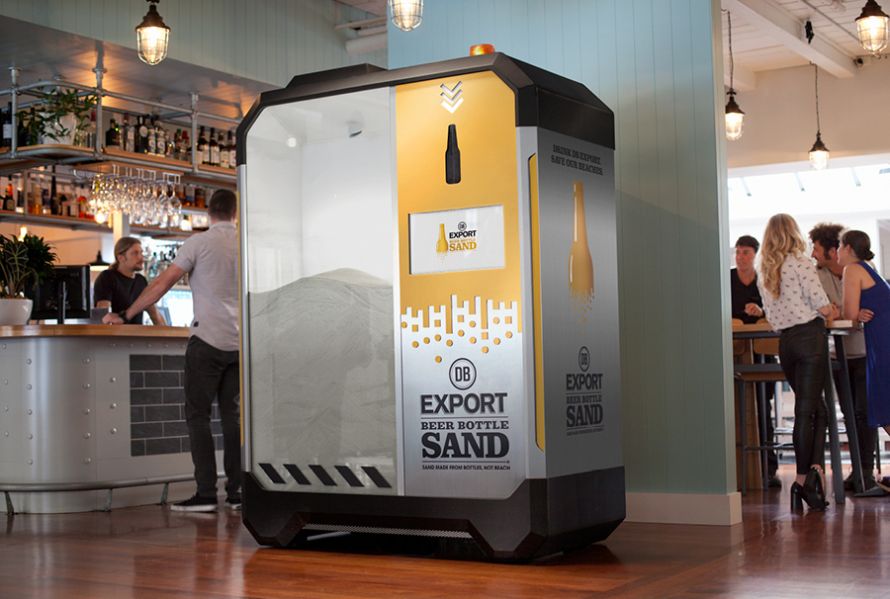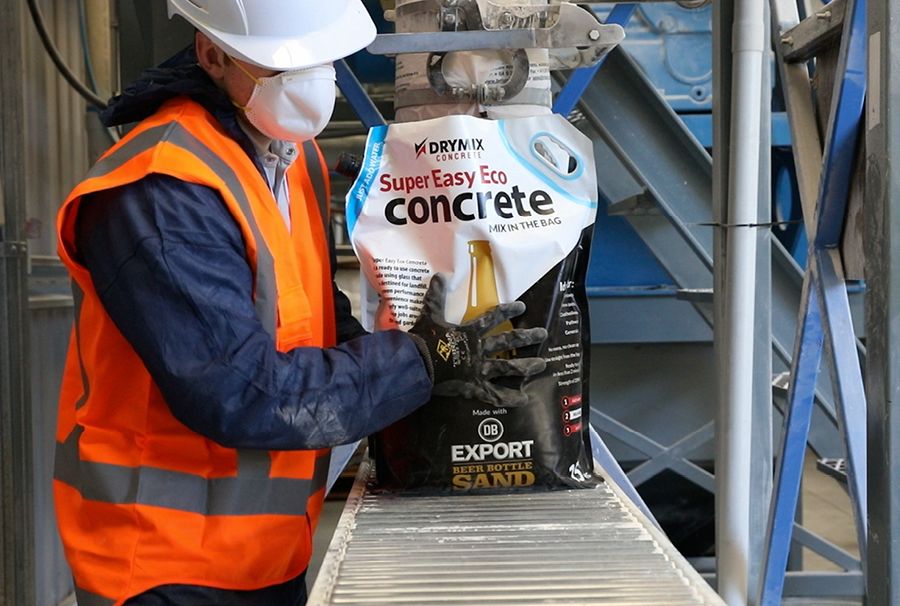Coromandel's sea of bottles
Waste collectors say last year's holiday 'tsunami' of bottles should not occur this summer.


It could have been called a mountain of glass. Except it was more like a tsunami of glass.
Last year holidaymakers in the Coromandel produced so many empty beer and wine bottles – hundreds and hundreds of tonnes of them – they effectively choked the recycling system.
The Whangamata, Whitianga, Whangapoua and Matarangi areas have been identified as the busiest in New Zealand for waste collectors over the festive period – and last year the swollen population enjoying the long, hot summer slaked their thirst so much they overwhelmed the collection centres.
Eyewitnesses told of people dumping their bottles at the centres – but the volume became so big that bottles spilled over from skips in such volumes that the trucks hauling them away could not get near enough to pick up the bottles to take them to Auckland for sorting and recycling.
“It was well into March-April before they got that stuff out of there,” says Rodney Baribal, of Smart Environmental Ltd, waste collectors and part of the recycling system.
According to council figures the Thames-Coromandel District population sits around 27,500 for most of the year. However, at its peak last summer, that swelled to more than 126,000 people with 28,050 of those based in Whangamata alone.
At the time, another spokesperson from Smart Environmental, Grahame Christian, said tourists produced "exponentially" more rubbish and recycling during their whirlwind summer holiday.
"Everyone talks about a peak period whether it's Whangarei or the northern areas of Rodney, but Thames-Coromandel is just ballistic. It's exponentially the heaviest increase in population in the country including Queenstown and Wanaka as well."
This year, however, Baribal says the collection centres have had bunkers (funded by the Glass Packaging Forum which connects companies which use glass packaging with recycling firms) installed – including one ‘super-bunker” – to accommodate the volume.
“We think we have a pretty good handle on it this year,” he says.
Last year’s bottle tsunami also caught the attention of DB Breweries – a company which is part of the Glass Packaging Forum and which has adopted a couple of unique approaches to glass recycling.
One is its DB Export Beer Bottle Sand machines. The beer brand recently partnered with a recycling company to help turn waste glass into a useful sand substitute. This contaminated glass, otherwise destined for landfill, then becomes a product which (among other uses) goes into a ready-made concrete (Drymix Super Easy Eco-Concrete) available at a national DIY retailer.
So far, they have crunched up over 300 tonnes of glass into a sand substitute – also used in roading, construction (as at Queenstown airport) and golf courses – where it takes the place of bunker sand which would otherwise be sourced from beaches.
DB Export is also running, this summer, a competition encouraging Kiwis to submit “world-saving ideas” for a prize of up to $50,000.*
Tony Wheeler, senior marketing manager, DB Export, says the Coromandel bottle tsunami was so vast last year that the need for creative ideas to solve local environmental problems seems greater than ever.
“Last year in the Coromandel was a volume problem that thankfully looks like it will be avoided this year,” he says. “But we know there are other local problems around the country just waiting for a creative solution, so we’ve put a call out to New Zealand to see if anyone has any bright “world-saving ideas” to help solve problems in their own back yard. We’re keen to help turn these ideas into a reality.”
However, the Coromandel bottle problem will be avoided this year, not just by the new bunkers and extra capacity to deal with the volume – but also by consumers being more aware.
Too many put the wrong things or the wrong glass in kerbside containers because many do not fully understand glass recycling rules.
Glass bottles and jars are the target. Window glass, broken wine and drinking glasses, pyrex and other ovenware, mirror glass, windscreen glass and most other forms of glass are not – because they are formed from a different chemical base and can’t be recycled back into bottles and jars.
Wheeler says: “Coromandel uses crates to recycle glass and this year we think it would be a world-saving idea – or a Coromandel-saving idea – if people didn’t put window glass and other non-recyclables in their crates.
“The other big problem is that people over-fill them. If you think about the guys in the trucks who come round to pick them up, they are lifting about 500-600 crates each.
“If the crates are over-filled, the bottles and glass fall out – and that’s a whole other issue.”
*For more information on the Save The Entire World competition here.
As one of New Zealand’s largest beer producers, we know we need to operate sustainably – not just for our sake, but also for the good of our local communities. That’s why sustainability is a key part of the way we do business at DB Export. Over the last three years DB Export has created two incredible, ‘world-saving’ ideas – Brewtroleum and Beer Bottle Sand. Now we’re looking for the next idea that might help ‘save the entire world’.



